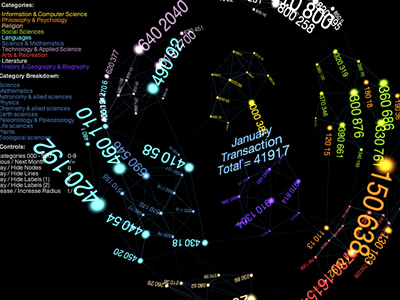The goal of science is to discover new knowledge and answer complex questions about our world. This process can be slow and time-consuming, relying on traditional methods of experimentation, observation, and analysis. In recent years, data science has revolutionized the way we approach scientific research enabling us to analyze vast amounts of data that were previously impossible to uncover. Here, we explore how data science accelerates scientific progress and revolutionizes our understanding of the world.
Mapping the Human Genome
The Human Genome Project was accomplished in 2003, mapping the entire human genome for the first time. This project was a massive undertaking that took years to complete, requiring hundreds of scientists around the world to collaborate. However, it was data science that enabled scientists to process and analyzes the massive amounts of data generated by the project, leading to breakthroughs in personalized medicine and genetic engineering.

Climate Change Research
Climate change is a primary challenge facing humanity, and data science is playing a vital role in our understanding of its complexity. Scientists are analyzing vast amounts of data from satellites and weather stations to predict how our planet’s climate will change in the future. They are helping governments take action to mitigate effects on the environment. The Intergovernmental Panel on Climate Change (IPCC) relies heavily on data scientists to conduct research and make policy recommendations to governments worldwide.
In recent years, data science has revolutionized the way we approach scientific research
enabling us to analyze vast amounts of data that were previously impossible to uncover.
Drug Discovery and Development
Data science revolutionizes the process of drug discovery and development. By analyzing massive amounts of data from clinical trials, scientists can quickly identify promising drug candidates and accelerate the development process. One example is the Cancer Genome Atlas, which has used data science to analyze genomic data from cancer patients and uncover new insights into the disease. This research led to the development of new ways of treatments and personalized therapies for cancer patients.

Astronomy and Astrophysics
Thanks to data science, astrophysicists can now analyze vast amounts of data from telescopes, satellites, and other sources to uncover new insights into the cosmos. One example of this is the Large Synoptic Survey Telescope (LSST), which will generate vast amounts of data on the universe when it becomes operational by 2023 or 2024. With the help of data science, hopefully, scientists will be able to analyze this data to uncover new insights into dark matter— the mysterious substance that makes up 85% of all matter in the universe.

The FUTURE
As these examples show, data science is transforming the way we approach scientific research, enabling us to analyze vast amounts of data and extract insights that were previously impossible to uncover. This is how scientists are accelerating the pace of scientific progress, unlocking new insights and pushing the boundaries of our understanding of the world around us.
The potential of data science to accelerate scientific progress is virtually limitless. By applying data to a wide range of scientific fields, from medicine to physics to social science, we can gain new insights into complex problems and develop solutions that were previously impossible to achieve, as we generate more and more data, we must develop new tools and techniques to analyze and interpret that data.
We must also ensure that our data is accurate and reliable and that our algorithms are transparent and ethical. As data science continues to evolve, it will be critical for scientists to work together to address these challenges— and ensure that we can use data science to drive scientific progress forward in a responsible and effective way.
So in conclusion, what does data science do? It revolutionizes the way we approach scientific research, enabling us to unlock new insights and accelerate the pace of scientific progress. Moreover, with the help of data science, scientists are pushing the boundaries of our understanding of the world— developing new treatments for diseases, tackling complex issues such as climate change, and exploring mysteries of the universe. The potential of data science to drive scientific progress forward is virtually limitless; it’s hard to imagine that any problems can be solved by the data in the future.
Also, Read: Exploring DATA Sciences with Prof. Dr. Murtaza Haider


